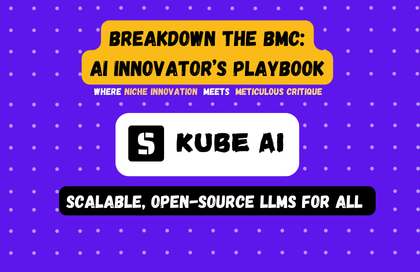As we conclude Hacktoberfest, there’s no better time to celebrate the thriving open-source community. We’re spotlighting KubeAI, a powerful open-source project designed to make deploying and managing Large Language Models (LLMs) on Kubernetes as simple as possible. At its core, KubeAI offers the same seamless development experience you would get when running models on proprietary platforms like OpenAI—except now, you have full control over your infrastructure. We sat down with Sam Stoelinga, the co-creator and maintainer of KubeAI, to dive deeper into the project and its impact on the AI ecosystem.
What is KubeAI?
Imagine deploying and managing LLMs like OpenAI models, but instead of depending on a closed system, you’re leveraging your own Kubernetes clusters. That’s where KubeAI offers a private, open-source alternative that gives you the same experience of managing models as if you were using OpenAI's infrastructure but in a highly customizable, scalable environment.
“I was figuring out the issues in running LLMs on Kubernetes, and that’s where KubeAI came in. It gives the same dev experience as hosting on a private cluster, but it’s only a helm install away.”
helm install kubeai --namespace ai-inference
Sam’s insight into solving the challenges of running LLMs on Kubernetes drove his interest in developing KubeAI. By making complex AI infrastructure available with a simple command, developers no longer need to wrestle with the complexities of model deployment. This is a significant shift, allowing teams to spend more time focusing on model utilization and less on infrastructure management.
Why KubeAI?
Running LLMs on Kubernetes is tricky: it’s not just about infrastructure but also optimization for large-scale AI deployments.
"Instead of waiting 30 minutes to download a 100 GB model, KubeAI's caching and optimizations make it possible to deploy large models even with slow internet."
Sam saw this challenge first-hand while managing LLMs and decided to create KubeAI to overcome two major pain points:
Efficiency in model hosting: Instead of waiting for hours to download and cache models (think 7 TB models), KubeAI provides model caching and proxying that helps optimize large-scale operations for teams with limited bandwidth.
Autoscaling for Inference and Batch Processing: Whether you're deploying small LLMs or running inference on millions of documents, KubeAI’s intelligent autoscaling capabilities ensure that your resources dynamically adjust to workload demands. This means you can achieve low-latency inference during peak times, while batch processing allows you to complete large tasks faster without actual manual intervention.
Keep reading with a 7-day free trial
Subscribe to AI with Aish to keep reading this post and get 7 days of free access to the full post archives.





